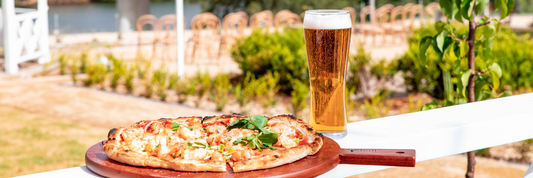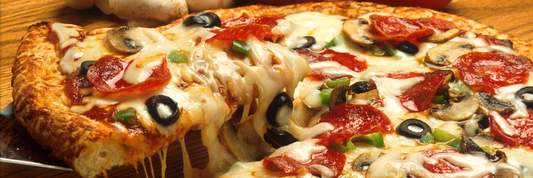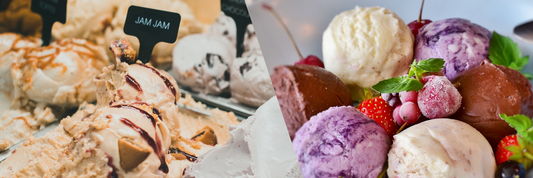Mango pickle is a popular condiment enjoyed across various cuisines, particularly in South Asia. It is made by pickling raw mangoes with oil, salt, and a blend of spices. While it adds a tangy and spicy flavor to meals, many people wonder about its nutritional value, particularly its calorie content. This article provides a detailed breakdown of mango pickle calories, its overall nutrition profile, and how it fits into different diets.
- Mango Pickle Recipe: A Step-by-Step Guide
- Homemade vs Store-Bought Pickles: Which Lasts Longer?
- How to can pickles at home?
Calories in Mango Pickle
The calorie content in mango pickle varies depending on the preparation method, ingredients, and serving size. Here’s a general estimate:
- 100 grams of mango pickle: Approximately 200-300 calories, depending on the oil and sugar content
- One tablespoon (15g) of mango pickle: Around 30-45 calories
Homemade mango pickles tend to have fewer calories compared to store-bought varieties, which often contain added preservatives, sugar, and excess oil.

Nutritional Breakdown of Mango Pickle
1. Carbohydrates
Mango pickle contains a moderate amount of carbohydrates, mostly from the raw mango and any added sugar. Depending on the recipe, 100g of mango pickle can contain 10-20g of carbs, with sugar contributing to the total count.
2. Protein
Mango pickle has minimal protein content, usually around 1-2g per 100g. It is not a significant source of protein.
3. Fats
The fat content in mango pickle depends on the type and amount of oil used in the preparation. 100g of mango pickle can contain 10-20g of fat, primarily from mustard oil, sesame oil, or other vegetable oils. While these oils provide healthy fats, excessive consumption may lead to high calorie intake.
4. Fiber
Mango pickle provides a small amount of dietary fiber from the raw mango skin and spices, typically around 1-3g per 100g. This can contribute to digestive health when consumed in moderation.
5. Sodium (Salt Content)
One of the key concerns with mango pickle is its high sodium content, which is due to the pickling process. 100g of mango pickle can contain 1000-3000mg of sodium, which is a significant portion of the recommended daily intake. Individuals with high blood pressure or sodium-sensitive conditions should consume it in moderation.
6. Vitamins and Minerals
Mango pickle contains essential micronutrients, including:
- Vitamin C: Supports immunity and skin health
- Iron: Helps in oxygen transportation in the body
- Potassium: Aids in maintaining fluid balance and muscle function
- Antioxidants: Derived from turmeric, mustard seeds, and fenugreek, these help reduce inflammation and oxidative stress
Is Mango Pickle Healthy?
Mango pickle can be both beneficial and problematic, depending on the consumption quantity and ingredients used.

Health Benefits of Mango Pickle
- Aids digestion: Fermented pickles contain probiotics that promote gut health.
- Rich in antioxidants: Spices like turmeric and mustard seeds provide anti-inflammatory benefits.
- Boosts appetite: The tangy flavor stimulates taste buds and enhances digestion.
Potential Health Concerns
- High in sodium: Excess sodium can lead to increased blood pressure and water retention.
- High in fats and calories: Oil-based pickles may contribute to weight gain if consumed in large quantities.
- Added preservatives: Store-bought varieties may contain artificial additives that could be harmful with excessive intake.
Mango Pickle in Different Diets

1. Is Mango Pickle Suitable for a Low-Carb or Keto Diet?
Mango pickle is not keto-friendly due to its carbohydrate content from mangoes and added sugar. However, small amounts may be consumed in a low-carb diet, provided there are no added sugars.
2. Can Mango Pickle Help with Weight Loss?
While mango pickle itself is not a weight-loss food, consuming it in small portions can add flavor to meals without significantly increasing calorie intake. However, those on a calorie-restricted diet should be mindful of its oil and sodium content.
3. Is Mango Pickle Safe for People with High Blood Pressure?
Due to its high sodium content, mango pickle should be consumed in moderation by individuals with hypertension. Opting for a homemade version with less salt is a healthier alternative.
How to Choose a Healthier Mango Pickle
If you enjoy mango pickle but want a healthier version, consider the following tips:
- Opt for homemade: Making mango pickle at home allows you to control the ingredients, reducing excessive oil and salt.
- Check nutrition labels: If buying from a store, look for brands with lower sodium and oil content.
- Use healthier oils: Pickles made with mustard oil or olive oil are a better choice compared to those made with refined vegetable oils.
- Limit portion size: Stick to a small serving (1-2 teaspoons per meal) to enjoy the taste without excessive calorie intake.
Conclusion
Mango pickle is a flavorful condiment that can add a tangy kick to meals. While it contains beneficial antioxidants and digestive properties, it is high in sodium and calories, making moderation key. Those tracking their dietary intake should be mindful of portion sizes and opt for healthier homemade versions when possible.
By understanding the nutritional value of mango pickle, you can make informed dietary choices that align with your health goals.







